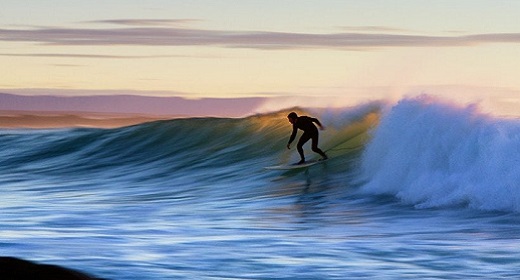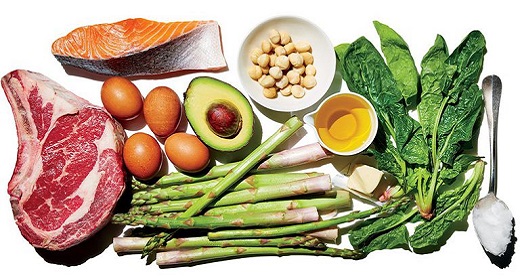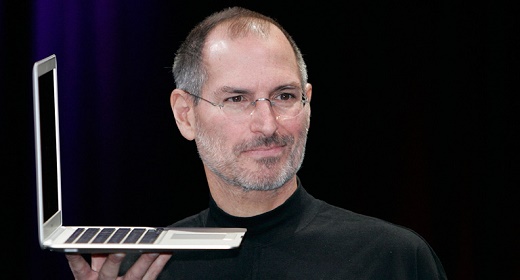by Brad Stulberg: And what happens to your brain when you finally nail it…
You’ve probably heard of the 80/20 rule before: once you’ve learned or figured out the first 80 percent of something, the effort it will take to learn the last 20 percent might not be worth it—because the last 20 percent is almost always the hardest. The 80/20 rule, also called the Pareto principle, applies to both physical and cognitive pursuits. For example, it’s usually easier to go from running nine-minute miles to six-minute miles than it is to go from running six-minute miles to five-minute miles; it’s easier to get proficient at chess than to become an international grand master.
The 80/20 rule is interesting to consider, but it can also be misleading. That’s because both the early and the late stages of skill acquisition feature unique benefits despite their varied difficulties.
Beginner’s Luck
When author and Outside contributing editor Tom Vanderbilt had his daughter, he, like so many other new parents, spent endless hours in awe of her capacity to learn new things and the joy those processes brought her. This got Vanderbilt thinking: When was the last time I learned anything new? So began his journey to learn five new skills—chess, singing, surfing, drawing, and juggling—which he details in his latest book, Beginners: The Joy and Transformative Power of Lifelong Learning. Vanderbilt makes a compelling case that learning something new has myriad advantages, including promoting the brain’s ability to rewire itself, connecting you to new people and new communities, and reengaging our innate curiosity and open-mindedness. While all of these offer tremendous benefits, that last one may be the most important.
One of the big five personality traits is openness to experience (the others are conscientiousness, extraversion, agreeableness, and neuroticism). Research shows that individuals who score high in this trait tend to have a richer life experience. They are more aware of what is going on around them, and in turn they feel more complex emotions because they’re accustomed to processing incompatible information. A 2016 study of school children in China showed that this trait is associated with enhanced intelligence and creativity. And last, but certainly not least, particularly in these times of change and disorder, openness to experience is also a good way to prevent anxiety.
The work that Brown University neuroscientist and psychiatrist Judson Brewer chronicles in his recent book Unwinding Anxiety: New Science Shows How to Break the Cycles of Worry and Fear to Heal Your Mind shows that cultivating a curious and open attitude toward whatever is going on around you helps reduce the physical and psychological symptoms of anxiety. On experiments Brewer ran where subjects were hooked up to functional MRI machines to monitor the activity in their brains, he found that the more curious and open someone is about their experience, the less activity there is in brain regions associated with anxiety. “Tightness, rigidity, and a narrow view are all associated with contraction,” he says. “But curiosity and openness tend to bring about lightness and freedom.”
Adults tend not to try new things because they are worried that they’ll fail, or at the very least believe they won’t be any good. The best way to break through that, of course, is to just start trying new things. When you become a beginner, you are, as much as anything, training your curiosity—and the related trait of openness to experience. Being a beginner is fun and playful. As Vanderbilt observed in his young daughter, the beginner’s way can often be carefree.
Becoming a Master
While some people are terrified to try anything new, there are also people who are perpetual dabblers that never go on to master anything. This, too, leaves much on the table.
Mastery, or throwing yourself fully into an activity and pursuing even the most incremental gains (i.e., the last 20 percent), is good for the mind and body. It teaches patience, self-determination, and persistence, and it’s the perfect antidote to the ephemeral, silver-bullet, hack-filled, dopamine-chasing ethos we find ourselves in today. It is one thing to keep going when everything is hunky-dory, when you are making swift and observable progress. It is another to keep going when you reach a stubborn plateau. Mastery teaches you about the latter.
“In the land of the quick fix it may seem radical, but to learn anything significant, to make any lasting change in yourself, you must be willing to spend most of your time on the plateau, to keep practicing even when it seems you are getting nowhere,” writes George Leonard, an author and pioneer of the 1960s human-potential movement, in his book Mastery.
For most, the plateau is a form of purgatory. But to advance beyond the low-hanging fruit in any meaningful discipline—lifting weights, writing, running, meditation, training a dog, parenting, marriage—you must get comfortable spending time there. Just like there is a richness that comes with trying something new, there is an equal richness that comes with getting deeper and deeper into something familiar.
“To practice regularly, even when you seem to be getting nowhere, might at first seem onerous,” writes Leonard. “But the day eventually comes when practice becomes a treasured part of your life. You settle into it as if into your favorite easy chair. It will be there for you tomorrow. It will never go away.”
Perhaps the key to long-term fulfillment, skill, and happiness is to think about the 80/20 rule like this: embrace both zero to 80 and 80 to 100. Find ways to be a beginner, or at the very least cultivate a beginner’s mind. But also work toward being a master in some way, prioritizing depth and experiencing the granular texture that comes with it.
Brad Stulberg (@Bstulberg) coaches on performance and well-being and writes Outside’s Do It Better column. He is bestselling author of the books The Practice of Groundedness: A Path to Success That Feeds—Not Crushes—Your Soul and Peak Performance, and cofounder of The Growth Equation.














































